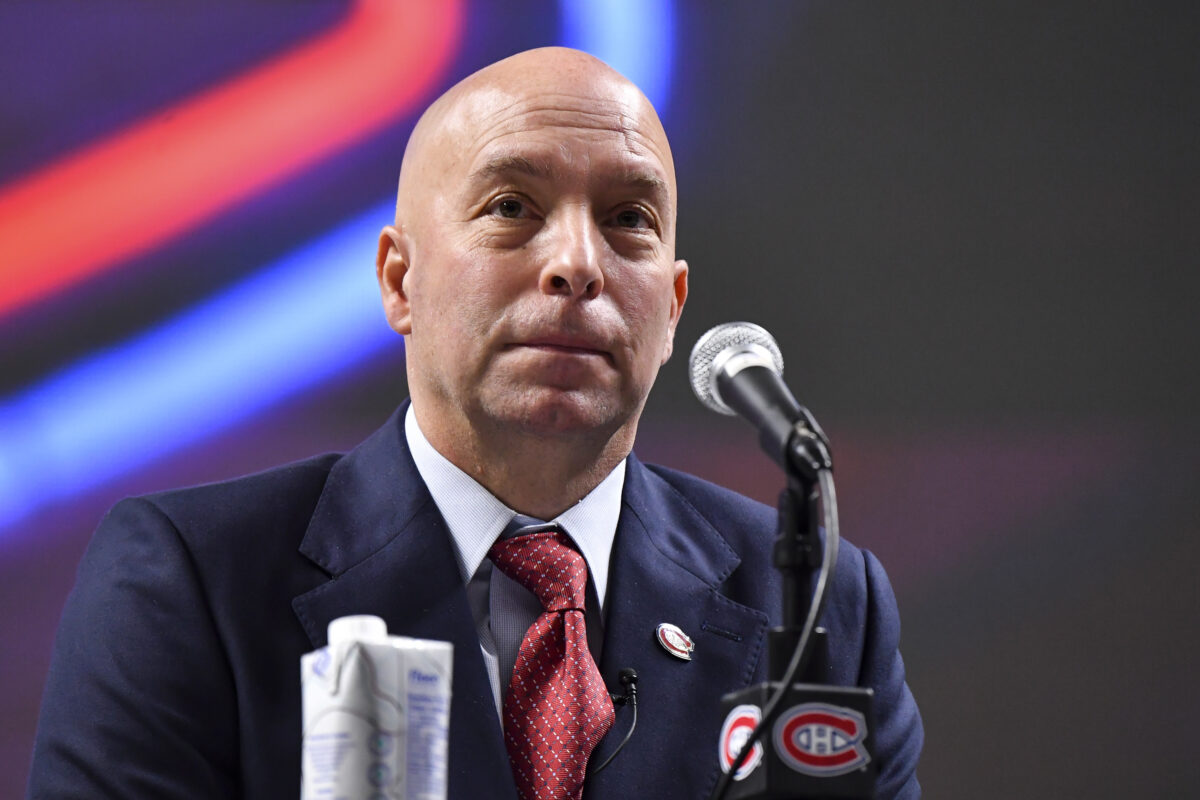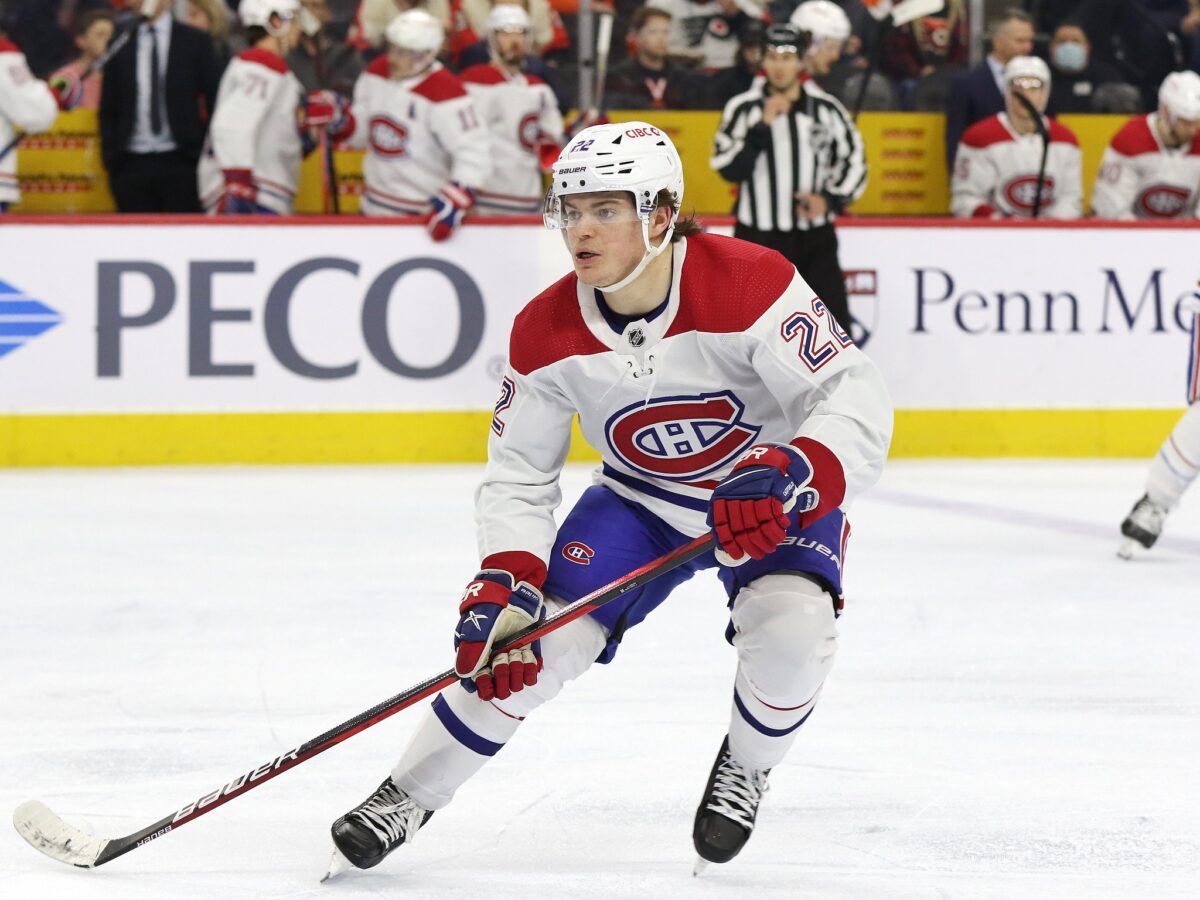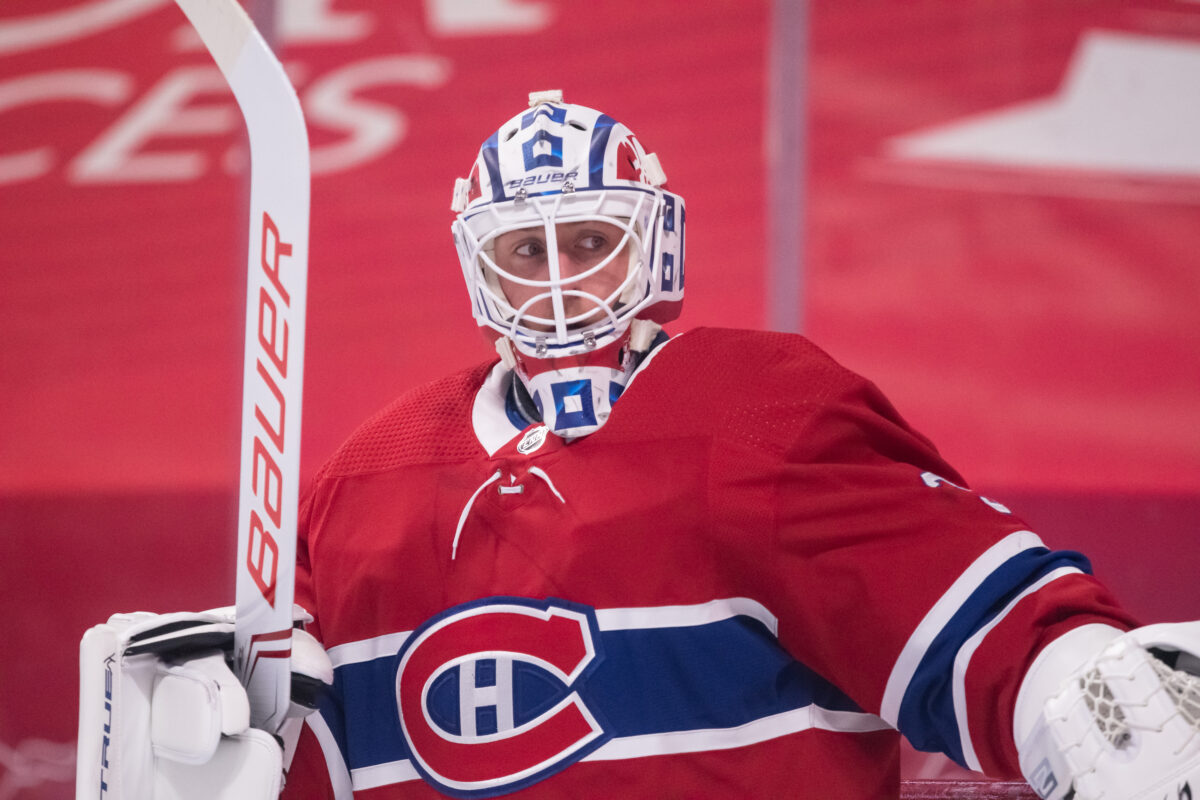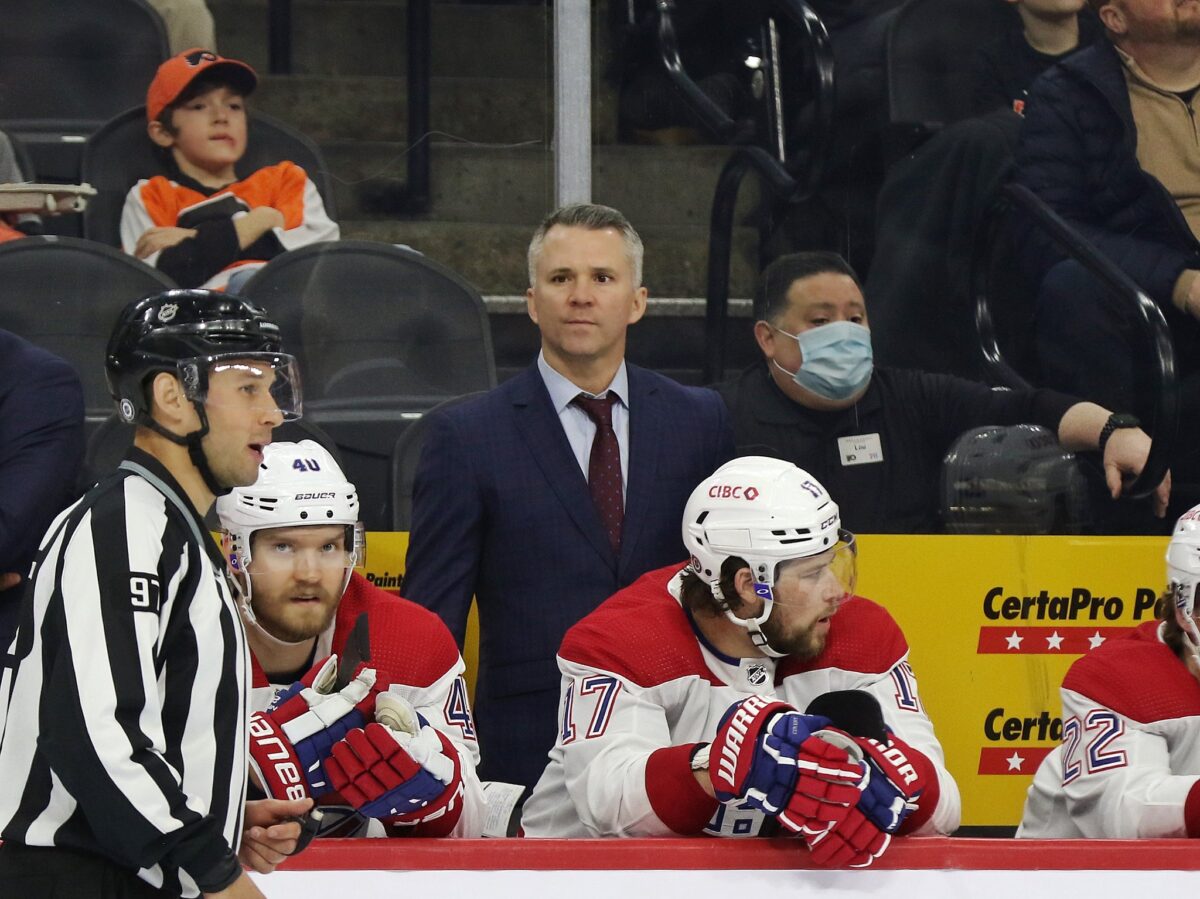On the plus side, if the Montreal Canadiens win all their remaining games, they’ll end up with well over 100 points. Seeing as the 100-point Washington Capitals just made the playoffs as the second Eastern Conference wild-card team in 2021-22 though, that still makes the vast majority of those remaining Habs games must-win affairs.
At 20-26-4 though, the Canadiens are second-last in the East. They are 11 points from last (Columbus Blue Jackets, who are last overall), but 13 points back of the second-wild-card Pittsburgh Penguins. Needless to say, the Canadiens are more likely to miss the postseason at this juncture, which doesn’t have to be a bad thing.
All teams miss the playoffs at one point or another, even the very best, with the Stanley Cup-champion Colorado Avalanche a) barely holding onto a spot in the Western Conference entering Tuesday night action and b) having finished last in the standings five seasons before their championship victory. So, following a similar path to contention as the Avs shouldn’t be off the table for the Canadiens, as they theoretically get set to stockpile blue-chip prospects for another season or two.
With the 2023 NHL Entry Draft projected to be incredibly deep, it’s been well-established that the Canadiens, who are undeniably rebuilding, are better served with as high a draft pick as possible. And, while head coach Martin St. Louis and the players themselves obviously won’t tank, the same can’t necessarily be said of general manager Kent Hughes, who knowingly entered this season with a goaltending tandem of two backups in Jake Allen and Samuel Montembeault.

In effect, commissioner Gary Bettman is right when he says, “tanking, I believe, is inconsistent with the professionalism that our players and coaches have.” He’s wrong when he says, “nobody tanks,” though. Executives clearly do as ex-Buffalo Sabres GM Tim Murray made clear (if not explicit) in 2015, thinking as much as he did about the idea of selecting Connor McDavid, which obviously didn’t come to pass.
Despite tanking’s drawbacks and lack of guarantees though, the fact the last-place Sabres still drafted Jack Eichel at No. 2 overall nevertheless proves it has merits. And, while Hughes isn’t actively shipping out players to make his team worse, it’s clear the Canadiens are likelier to benefit from a few extra losses down the stretch than wins.
The Canadiens’ March 25 game at home against the Blue Jackets may be out of the question as far as the must-lose label goes. It seems unlikely the Habs will be able to catch them at the bottom of the standings at this juncture. Ditto for the 31st–overall Chicago Blackhawks (Feb. 14), who have just one more point with 34.
However, losing like the Habs did against the Ottawa Senators this past weekend in the first half of a home-and-home series, wasn’t the worst thing. Granted, the 5-0 final score was less than ideal for the purposes of a rebuild, but, with the Senators directly above the Habs in the Atlantic Division, the loss was for the best. Looking past the rematch on Jan. 31 (and Feb. 25), here are the five other must-lose games that remain on tap for the Canadiens down the stretch of the 2022-23 season:
Philadelphia Flyers (Feb. 24 + March 28)
The Philadelphia Flyers next face the Canadiens on Feb. 24, the day before their last meeting of the season against the Senators. So, as those two games are on back-to-back nights, it bodes well for the rebuild… not so much their comeback victory over the Flyers on Nov. 19, when Cole Caufield scored the game-tying goal with less than two seconds left on the clock, setting the stage for a Habs shootout win.

To be perfectly clear, with Caufield now out for the season with an injury, no one is wishing physical ill will on the Canadiens. However, as there’s nothing that can be done, there’s no point other than to look at the silver lining here. The Flyers, at 21-21-9 entering Tuesday night action, seven points more the Habs, are one of the teams the Canadiens shouldn’t want to catch.
Simply put, with all the injuries the Canadiens have sustained, it’s going to be increasingly difficult for them to stay competitive. The Habs’ schedule is already among the toughest of any NHL team down the stretch anyway, obviously with a few exceptions (the games in this piece, for example).
Their last game against the Flyers this season on March 28 may fit into that category too, but it is similarly part of a set of back-to-back games. The Habs first face the Buffalo Sabres before traveling to Philadelphia, adding an extra degree of difficulty to the match-up. Again, purely for the sake of the rebuild, it’s for the best.
San Jose Sharks (Feb. 28)
Just three points back of the Canadiens, the San Jose Sharks are one of the few teams below the Habs in the standings. More importantly, for this piece’s purposes, they’re one of the teams lower in the standings that can theoretically catch up with the Habs. A two-point swing following a hypothetical Canadiens loss in regulation when the two teams next face one another on Feb. 28 would theoretically work wonders.
It’s the final of two meetings between the two teams this season. The first time around, the Canadiens lost 4-0 at the Bell Centre on Nov. 29. For some additional context, that initial loss to the Sharks coincided with the Habs’ initial downswing in the standings that arguably spelled the end of their playoff hopes.
At one point in November, the Canadiens had been a relatively impressive 8-6-1. Before facing the Sharks in the last game of the month, they had just won two straight games and were 11-9-1, still two games above .500, with a slightly lower points percentage. They then failed to win two games in a row all of December, going a miserable 4-9-2, ending the calendar year in the middle of their notorious seven-game losing streak, during which they got outscored 36-12.
Anaheim Ducks (March 3)
At 16-29-5, the Anaheim Ducks are the lowest-ranking team on this list. They’re third from last in the standings with just 37 points, seven fewer than the Canadiens. For that reason, they’re arguably the biggest obstacle in the way of an elusive bottom-three finish and a claim to one of the big projected three top prospects at the 2023 NHL Entry Draft in Connor Bedard, Adam Fantilli and Matvei Michkov.
Related: Impressive Canadiens Have Competition at Bottom of Standings
Considering the Canadiens have already lost to the Ducks this season, another defeat isn’t out of the question. In fact, the Habs lost rather badly, 5-2 on Dec. 16, in a game that was more so embarrassing based on how Caufield scored twice early in the third period to tie the game 2-2 only for the Habs to almost immediately give back the momentum they had gained with three straight goals against.
Detroit Red Wings (April 4)
In some ways, the Detroit Red Wings are even bigger obstacles on this list than the Ducks. The Wings may be the best team of the four listed based on points percentage, but they’re also the team against whom the Habs have had the most success, at least from a results-based perspective, with a 1-1-1 record this season.
The Canadiens followed up a 3-0 defeat early in the season with a 3-2 shootout victory on Nov. 8, in which Allen stood on his head with 41 saves. Most recently, the Habs earned a single point in a 4-3 overtime loss to the Red Wings on Jan. 26. Truth be told, getting outshot 42-23 in the contest, the Habs arguably deserved to lose anyway.

It goes to show that nothing is for certain and the Canadiens and their fans can’t take anything for granted. Considering the Habs have followed up their infamous, aforementioned seven-game losing streak with a respectable 5-5-1 record, even in the face of all their injuries, they’re capable of great things on any given night.
Based on their overall body of work though, the Canadiens just aren’t ready to contend for a playoff spot just yet, making a continued focus on Hughes’ rebuild efforts the way to go. In that respect, there’s a case to be made all the team’s remaining games must be lost, but, not only is that unrealistic mathematically speaking, it runs counter to effort level they’ve generally displayed all season long under St. Louis.

With that in mind, no one should look at the above games as ones the Habs should (i.e., will) lose, only games they should lose if Hughes and co. have their hearts set on a higher draft pick. It’s a subtle difference, but a difference all the same, kind of like rebuilding vs. tanking. The latter is a dirty word in the vernacular of the everyday Habs fan. The former? Maybe almost as taboo, but one with which every Habs fan needs to come to terms with sooner rather than later.
The Habs may very well fail to lose all of the above games (conceivably losing out on a franchise-altering talent in the process). However, with a .440 points percentage currently, they are realistically going to lose more often than they win the rest of the way. That’s just logical. The only question is how much?
